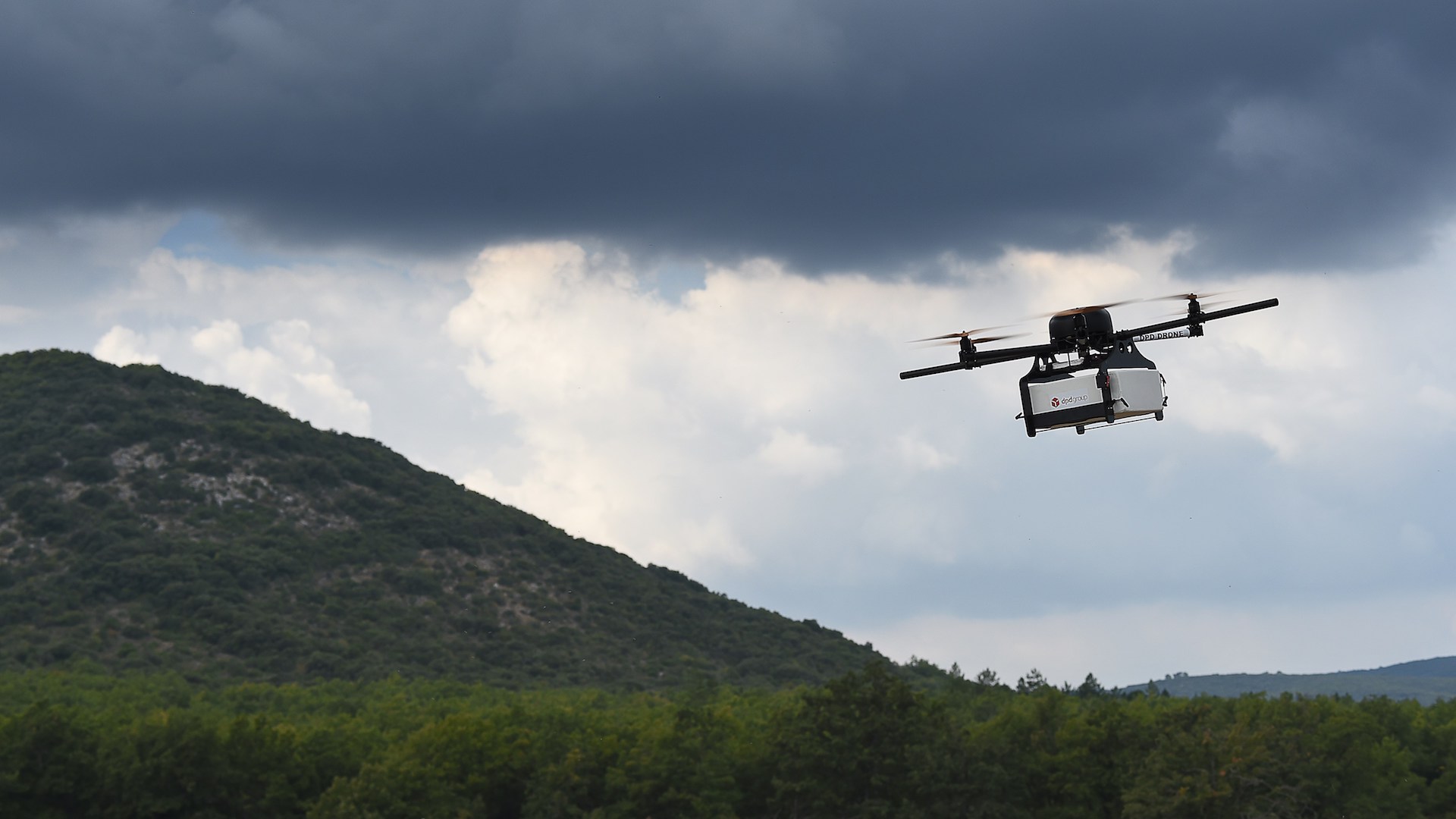

Last week’s additions to the Trump administration’s UAS Integration Pilot Program just keep unfolding, like layers of an onion, desperate to reveal all the new test projects within. According to Dronelife, North Carolina will serve as the testbed for medical deliveries, as the state’s Department of Transportation intends to work with Zipline, Matternet, and Flytrex in establishing clear guidelines for aerial supply deliveries for the future.
It’s important to note that that North Carolina has reportedly assisted companies in unmanned aerial systems projects before, such as PrecisionHawk’s efforts to create an unmanned traffic management system, and most recently, allowing Apple to use the territory for aerial imagery collection. This particular project, of course, is rooted in an effort to improve the health industry, with a focus on more efficiently delivering vital supplies and items.
“Blood and other supplies currently travel by courier to hospitals and testing facilities,” the Transportation Department press release reads. “With drones, medical providers would get the test results and supplies they need much faster.”
As for the aforementioned companies, Zipline launched Africa’s first UAV air corridor in collaboration with UNICEF, while Matternet has already proven its mettle regarding aerial medical supply in Switzerland. Flytrex is an Israeli company exclusively focused on becoming the Fed-Ex of the skies for food and package deliveries. All in all, not a bad batch of entities serving as the pedigree for the improvement of the conventional medical supply delivery industry.
“North Carolina has always been on the forefront of aviation innovation and now is a national leader in drone safety education and use,” said Chief Deputy Secretary David Howard on behalf of the state’s Transportation Department during the project’s announcement. “Being selected for this program will allow us to learn more about how drones can safely be used in new ways to help our citizens.”
As Howard expresses here, the entire impetus to loosen the standard restrictions for drone flight in U.S. airspace is to allow companies and states to broaden their drone-related horizons, gather data and experience as well as use this freedom to establish safe, effective guidelines across various industries for when the time finally arrives that our skies are ready for healthy commercial drone traffic. The FAA, of course, is enthusiastic and optimistic about the endeavor.
“The results from the Program will help to inform the development of future enabling regulations that will expand safe UAS operations and help to transition many of the new and novel operational concepts that we manage today by exception into routine, commonplace aspects of our everyday lives,” the FAA statement reads.
As far as newly authorized projects go, having Zipline, Matternet, and Flytrex work together on aerial medical supply delivery is a momentous move for the advancement of global UAV use-case progression.